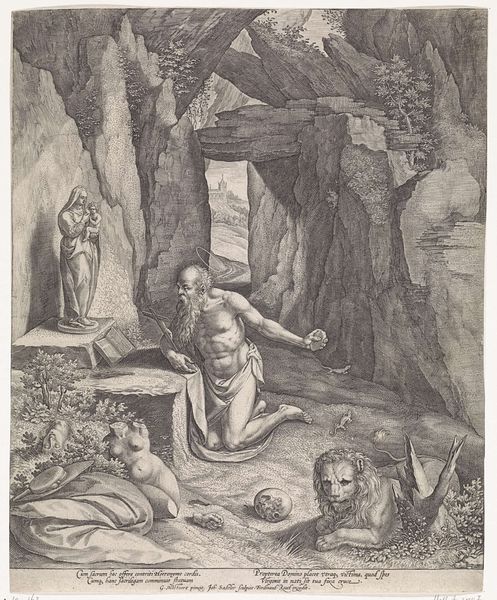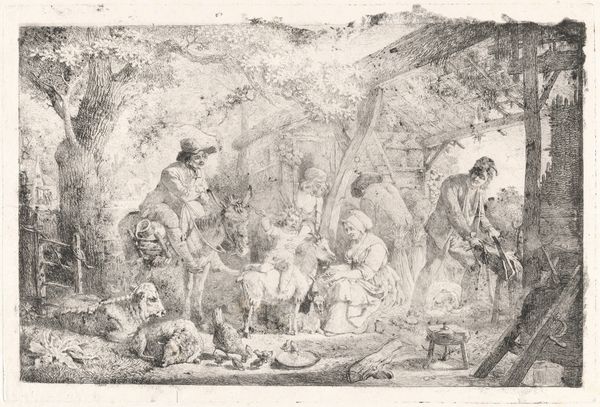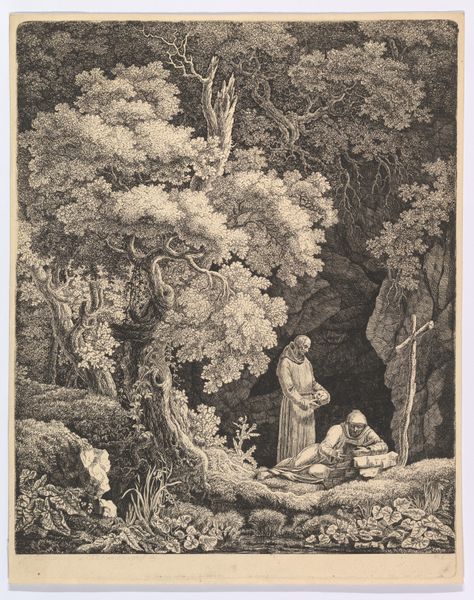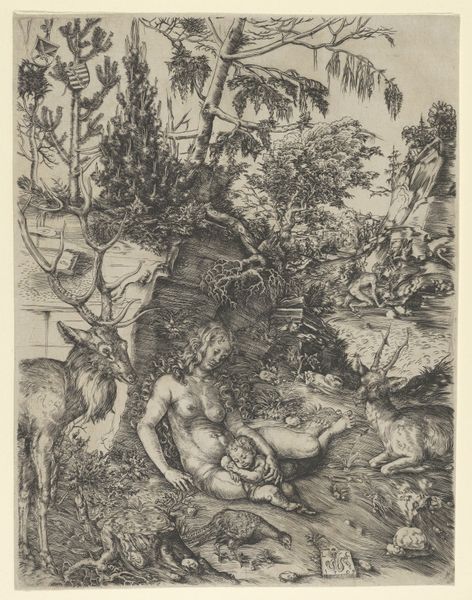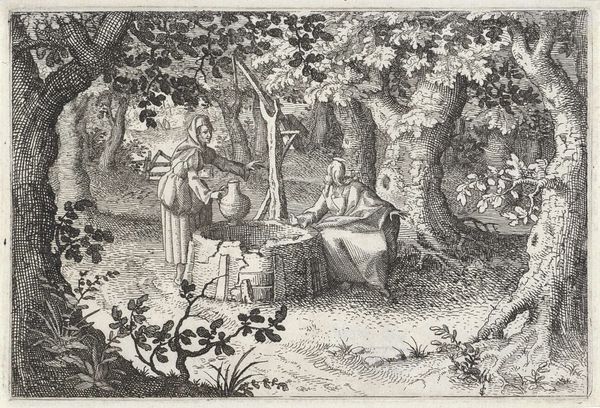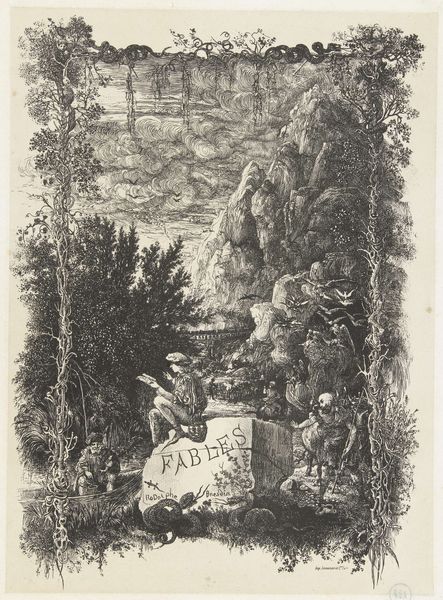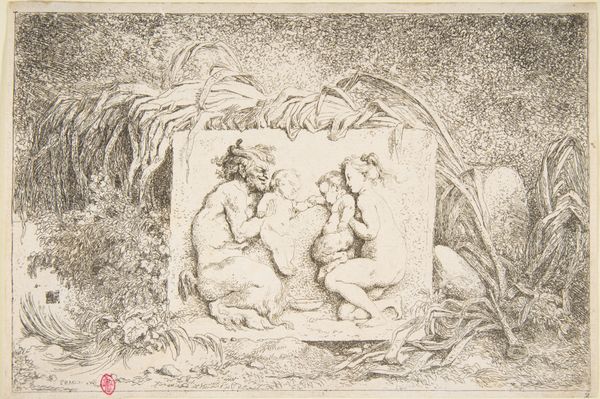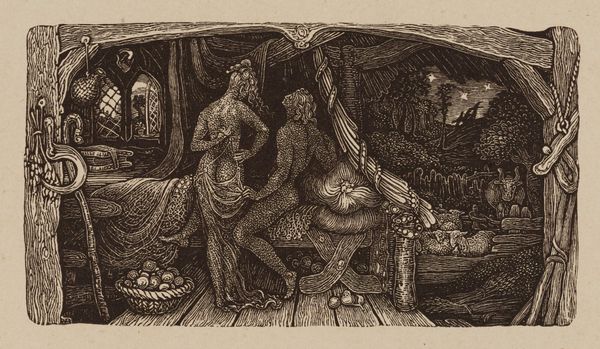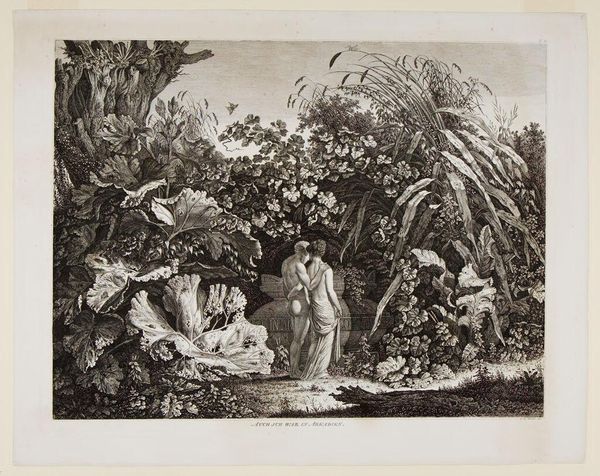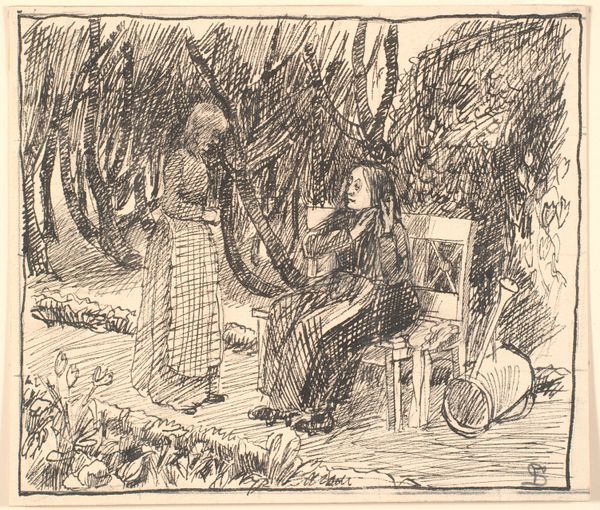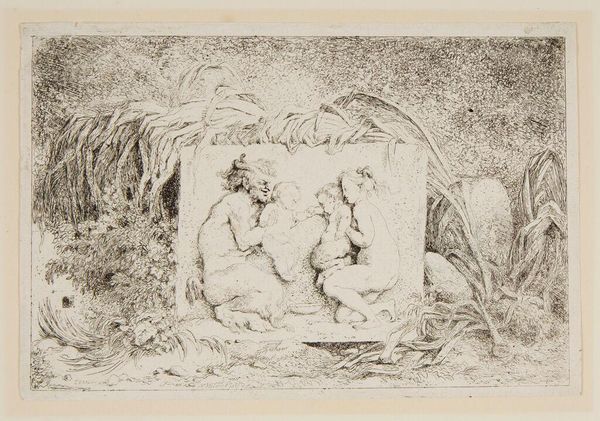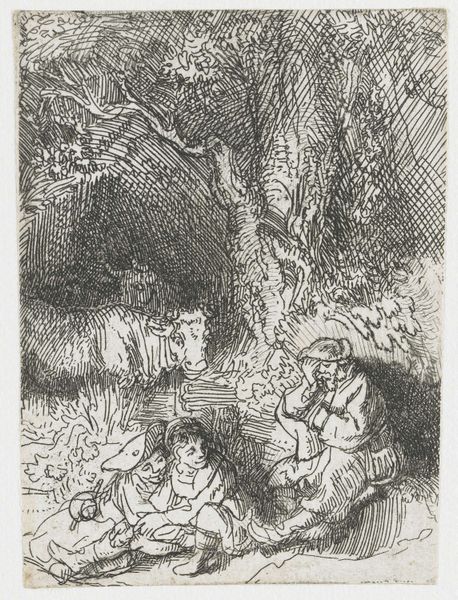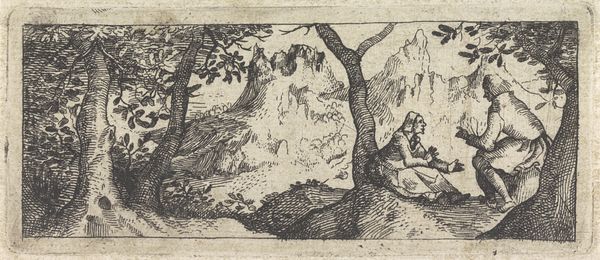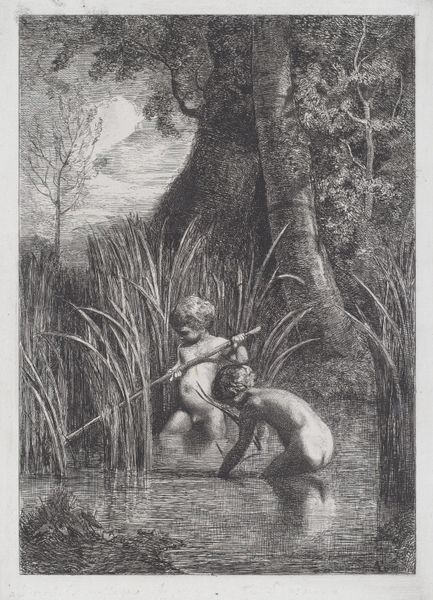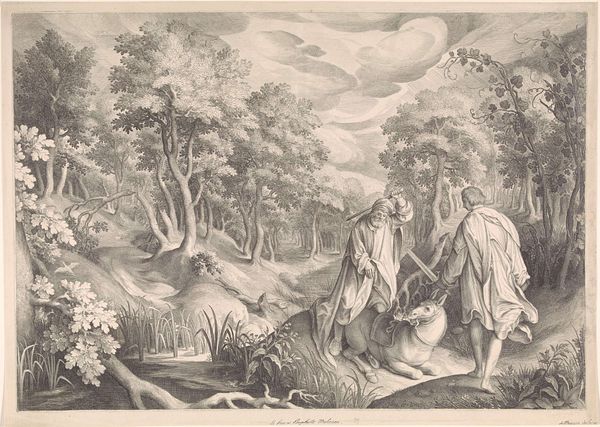
drawing, print, paper, ink, pencil
#
drawing
#
narrative-art
# print
#
landscape
#
fantasy-art
#
figuration
#
paper
#
ink
#
pencil drawing
#
pencil
#
surrealism
#
surrealism
#
modernism
Copyright: National Gallery of Art: CC0 1.0
Editor: So, this is Seymour Rosofsky's "The Love Fountain," an undated drawing, likely ink and pencil on paper. It feels a bit like a melancholic dreamscape, with these almost gothic figures and a strangely formal garden. How do you interpret this work? Curator: The drawing strikes me as an exploration of the complexities of childhood within a specific socio-political context. Notice the stark contrast between the innocent-looking children and the somber, almost decaying, architectural forms around them. How does that tension resonate with you? Editor: I guess it makes it seem less innocent? Like there's something lurking beneath the surface of this fairytale scene. Curator: Exactly. Rosofsky, known for his engagement with social issues, could be using this image to comment on the loss of innocence within oppressive environments. The "Love Fountain" itself, instead of offering nurturing love, seems to be another crumbling structure, further hinting at societal failures. The confined setting evokes spaces like playrooms and bedrooms; do you think that Rosofsky intentionally framed childhood with a surreal, unsettling quality that reminds us of psychoanalytical frameworks that understand personal anxieties through the lens of sociopolitical criticism? Editor: That’s really insightful. I hadn’t considered the social commentary aspect so directly, focusing more on just the personal mood of the drawing. It’s like the fountain is not giving, but just exists as an ornament, void of utility or significance. Curator: And doesn't the positioning of those children feel performative and devoid of true agency? That’s part of the visual argument. The garden seems artificially constructed, reflecting perhaps the way society imposes constructs upon children, curtailing the spontaneity and freedom which is so frequently linked to our common conceptions of a joyful, liberating childhood experience. This image allows us to ask who benefits from limiting children's capacity of thought and social mobility. Editor: I see what you mean. The title "Love Fountain" now seems almost ironic. I appreciate how this makes me consider the larger context surrounding the artist’s vision and purpose. Curator: And for me, I am reminded of art's power to reveal hidden dimensions within ourselves and broader political questions surrounding gender, sexuality, class, and social agency that frame children's rights, safety, and development.
Comments
No comments
Be the first to comment and join the conversation on the ultimate creative platform.
